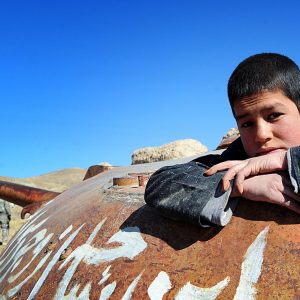The Stream, August 17: Colorado River Cutbacks Possible by 2020, Federal Report Warns
The Global Rundown
A newly-released U.S. federal report warns that water cutbacks in the southwestern United States could occur by 2020 as Colorado River water levels fall. Bushfire season begins early in parched Australia. Lead in U.S. Army bases is poisoning service members’ children, a new report claims. Delhi, India, neglects traditional rainwater harvesting amid its rapid urbanization. Florida declares a state of emergency as red-tide algae continues to taint the state’s southern waters. Much-anticipated rains arrive in Norway, securing the country’s winter power supply.
“If everything holds true and the hydrology matches the models, then that’s probably where we’re going to be.” –Marlon Duke, a spokesman for the U.S. Bureau of Reclamation, in reference to predicted water cutbacks along the Colorado River. According to the U.S. Bureau of Reclamation, there is enough water in the Lake Mead reservoir to avoid water shortages in 2019, but cutbacks are possible by 2020. The Colorado River system provides water to seven U.S. states, as well as northwestern Mexico. Colorado Public Radio
In context: Lake Mead Record Low Reflects Changing American West.
Latest WaterNews from Circle of Blue
What’s Up With Water – August 13, 2018 – “What’s Up With Water” condenses the need-to-know news on the world’s water into a weekly snapshot. Coverage this week includes: severe drought in Australia, extreme heat in Europe, and Israel’s changing water strategy.
HotSpots H2O, August 13: Intercommunal Violence Escalates in Ethiopia, Displacing One Million People – Since April, intercommunal violence has flared in Ethiopia’s Gedeo and West Guji zones, displacing an estimated one million people. The cause of the violence is unclear, but long-time regional tensions over land and water may be partially to blame.
By The Numbers
81 Number of grass and bushfires in New South Wales, Australia, as of Thursday. Thirty-eight of the fires are uncontained. Officials say that ongoing drought has had a “significant effect” on the unseasonal fires. Reuters
Past reporting on Australia from Circle of Blue: The Biggest Dry
$1.5 million Amount of funding that Florida will allocate toward tackling the “red tide” algae engulfing its coastal and intracoastal waterways. The red tide occurs annually in Florida, but concentrations of the algae have reached toxic levels this year, causing respiratory issues for people, and the deaths of fish, eels, porpoises, turtles, and manatees. Scientists are unsure why this year’s red tide is so severe, but warmer temperatures and changing agricultural practices are believed to play a role. The Washington Post
In context: Algal Blooms Are No Accident For Florida Everglades and Estuaries.
Science, Studies, And Reports
A recent investigation by Reuters found that several children living in U.S. military housing have been poisoned by lead, believed to be present in water systems, household paint, and soil at certain military bases. Although the extent of the problem is unclear, recent research has revealed unsafe lead levels in several privatized family housing units and schools. Reuters
On The Radar
After an abnormally dry summer in Norway, rains have finally arrived, securing the country’s winter power supply. Norway relies entirely on hydroelectric dams to provide its electricity, and power prices had surged to record-highs amid the months-long drought. Reuters
Spotlight: India
Follow The Stream for daily coverage on India’s water crisis.
The greater Delhi area is home to 29 million residents, and the city’s rapid expansion shows no signs of slowing down. In the process, the city has shifted from its historical reliance on rainwater harvesting, instead turning to groundwater extraction. Much of the city’s rainwater collection infrastructure has been demolished or abandoned. Now, as sweltering heat and grim water shortages overtake Delhi, experts question whether historical water systems can be revived. The Guardian
In context: Delhi Waits for Water, Part 1 and Part 2.

Kayla Ritter is a recent graduate of Michigan State University, where she studied International Relations and Teaching English to Speakers of Other Languages. She is currently based in Manton, Michigan. Kayla enjoys running, writing, and traveling. Contact Kayla Ritter







Leave a Reply
Want to join the discussion?Feel free to contribute!